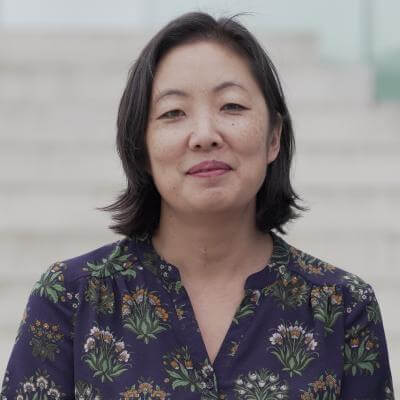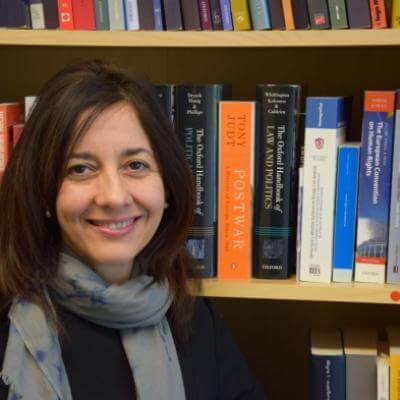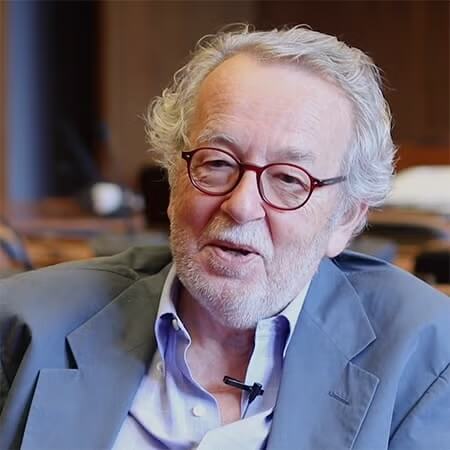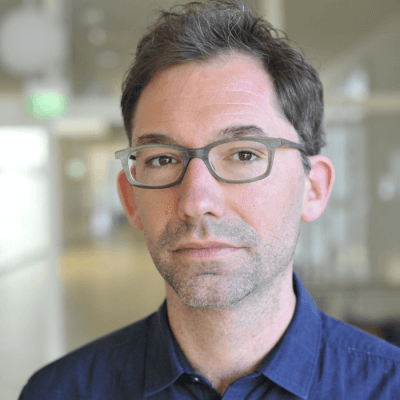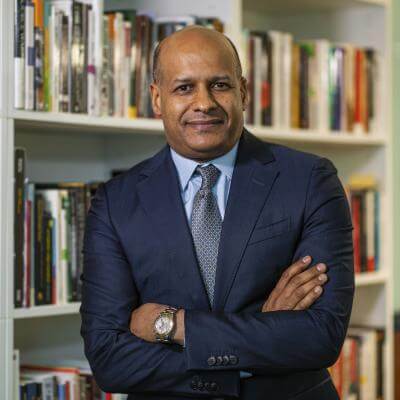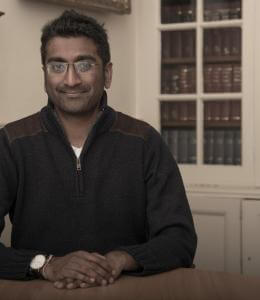Emergency Use of Public Funds: Implications for Democratic Governance
https://doi.org/10.71609/iheid-ac1s-ab94The response to Covid-19 has entailed the largest peacetime expansion in fiscal deficits in history, requiring new financial instruments, a repurposing of existing ones and a search for liquidity in general. States have been forced to use innovative means both to gather funds, such as mobilising defence budgets, and to disburse them, such as manufacturing and procuring ventilators or temporarily guaranteeing a basic income for all workers. The way democratic states have designed, funded and delivered welfare during the pandemic is illustrative of how ties between states and citizens are currently being reconfigured.
A series of states and public authorities including, prominently, India and the European Union, have reappropriated massive amounts of unspent welfare funds. Putting money to productive use in an unprecedented emergency is to be welcomed. Yet it begs two key questions: first, why were these funds not spent in the first place? Second, how does their emergency reappropriation affect democratic safeguards designed to ensure the accountability of their allocation and use?
THE EU CASE: RECASTING THE ROLE OF NATIONAL–LEVEL BODIES
EU institutions sought to “respond swiftly and flexibly” to the concurrent health and socio-economic emergencies. In mid-March, the European Commission presented the first elements of the Coronavirus Response Investment Initiative (CRII), directed in particular at health care, SMEs and labour markets. It immediately released to member states unspent or unallocated funds, including EUR 28 billion of unspent European Structural and Investment Funds (ESIF) and EUR 8 billion of unspent pump-priming funds for social welfare projects from the EU’s cohesion budget. The pre-crisis purpose of these funds was to mitigate welfare disparities between European regions. Under the CRII, the EU adapted its rules, allowing member states to use these funds for expenditures usually not supported by the European cohesion policy, such as income support, working capital in SMEs and measures to support and strengthen health systems.
A further round of rulemaking, CRII+, introduced even more flexibility: member states are now able to reallocate existing and future resources between programmes, regions and even between priorities. The European Commission also abolished the obligation of national co-funding, formerly a key condition for the use of structural resources. Moreover, even though ESIF are aimed at the least developed regions of the EU, member states can now move resources for the fiscal year 2020–21 to richer regions that have been hit hardest by the crisis. Member states thus now have more liquidity and greater discretion to allocate funds meant for EU welfare and cohesion as they see fit Member states thus now have more liquidity and greater discretion to allocate funds meant for EU welfare and cohesion as they see fit.
THE INDIAN CASE: REPURPOSING OF SPECIAL PURPOSE FUNDS
In India, Covid-19 is exerting a disproportionate impact on the poor and on migrant workers. Four hundred and fifty million labourers in the informal sector, constituting almost 90% of the workforce, have neither security of employment nor social protection. Entire families lost their livelihoods during the lockdown. On 26 March, 2020, the Indian government was compelled under public pressure to deploy USD 22.6 billion (INR 1.7 trillion) as emergency financial support for some of these poor and marginalised populations. At least one-third of this amount – USD 6.8 billion (INR 520 billion) – came from particular unspent welfare funds ringfenced for the benefit of construction workers. This money had been accumulating through a specific tax on construction projects passed into law in 1996. This was enacted following the post-1970s boom in the Indian construction sector, and the concomitant rise in construction workers who remain outside the purview of weak de jure and even poorer de facto labour protection. The Indian Supreme Court and Auditor General have consistently reprimanded the government for failing to spend the money collected for this purpose and for its limited political will to do so. Indian regional governments have now been directed to use these monies – often used to provide long-term pensions and healthcare – for immediate and direct cash transfers to all registered construction workers, changing the time horizon of the fund.
The central government also announced the freeing up of another USD 1–1.4 billion (INR 75–105 billion) from a different set of funds collected from mining companies for the benefit of communities adversely affected by large-scale mining, which had similarly been accumulating as a result of a 2015 law. The Act was a result of the massive expansion of mining activity, following liberalisation of the sector in the 1990s, which led to huge socio-economic dislocations and environmental damage. The state used its emergency powers to repurpose the monies away from mitigating the impacts of mining on local communities, and towards empowering local administrators to spend it on healthcare in any Covid-19-affected district. As in the EU, specific and regulated social welfare funds have been repurposed to support the general good, to be spent at the discretion of national and local administrators.
UNPACKING UNSPENT FUNDS: REFRAMING STATE-SOCIETY RELATIONS AND DEMOCRATIC ACCOUNTABILITY
In response to the pandemic, governments have directed unspent social welfare funds for purposes or populations they were not originally meant to benefit. Interestingly, this redirection has unexpectedly revealed why these funds have remained unspent in the first place. It has confirmed the ambit of bureaucratic obstacles like low institutional capacity to manage a high volume of funds, officials keen to avoid responsibility for misallocation or challenges in identifying beneficiaries. Another key reason for funds remaining unspent is the institutional fragmentation and complexity that marks both our cases, whether between supranational, national and subnational bodies in the EU; or between federal bodies, regional level institutions and local districts in India.
The emergency mobilisation of these funds can thus be understood as a way to suspend or bypass the cumbersome mechanisms regulating their distribution With everything from beneficiary identification, to anticorruption mechanisms, to monitoring and evaluation, to the funds themselves having to run through a complex constellation of institutions, targeted social welfare funds often fail to be disbursed to their designed beneficiaries. The emergency mobilisation of these funds can thus be understood as a way to suspend or bypass the cumbersome mechanisms regulating their distribution. Yet these mechanisms, for all their faults, are enshrined in law and tied to pathways for accountability and democratic control of public expenditure. Bypassing or weakening them thus comes at a price to key pillars of functioning democracies such as participatory decision making, transparency and answerability.
In the case of the EU, the flexibility afforded to member states in spending ESIF makes them less accountable to the European Commission and reconfigures practices and loci of accountability. As member state policy agendas become more important to their allocation, ESIF are less likely to enact forms of trans-European citizenship through pathways of accountability between EU institutions and citizens. As ESIF now filter through national modes of citizenship, accountability is fractured through a wide range of differing state-society relations, which are themselves made fragile by the state’s emergency executive power. In India, changes in administrators’ discretion in spending these funds is also redescribing state-citizen relations. They are filtering away forms of citizenship premised on the state’s care for particular vulnerabilities – as well as the state’s accountability to vulnerable groups for remedying them.
Our cases demonstrate a set of unintended political and institutional effects of the emergency mobilisation of unspent social welfare funds under Covid-19. Politically, it changes what both “welfare” and “social” might mean. In the case of Indian construction workers, “welfare” is transformed from a long-term to a short-term phenomenon as monies meant for pensions are hastily disbursed as cash transfers. With respect to the mining sector, “social” is transformed from a concern with the vulnerability of a mining-affected social group, to a concern for the health of the general public. And in the EU, “welfare” is transformed from a set of social benefits to healthcare ones; while “social” is redefined from a geographically differentiated phenomenon of poorer and richer areas to one that is at once pan-European (since ESIF can be transferred to richer regions also) and national (as member states take on more policy-making control). The emergency mobilisation of these funds is thus a vehicle by which the state participates in defining “society” and the kinds of welfare it deserves and should prioritise, without any public debate or scrutiny.Institutionally, this not only reshapes state-citizen relations, but does so in ways that recast the democratic accountability of the state more broadly Institutionally, this not only reshapes state-citizen relations, but does so in ways that recast the democratic accountability of the state more broadly. Emergency appropriation of funds is, of course, limited by the general accountability deficit of exceptional executive action. But this deficit is amplified as the appropriation of these funds reconfigures the identity of legitimate or relevant stakeholders, their modes of participation (de jure and/or de facto) in the allocation of the funds and their standing to hold decision-makers to account for that allocation. Participatory mechanisms of decision-making may become a casualty of such emergency redirection of massive unspent funds, as may monitoring by civil society. States may, in turn, reinforce their executive power in a sustained fashion – not only through legal and constitutional means, but also by fiscal means.
Electronic reference
Lutringer, Christine, Deval Desai, and Shalini Randeria. “Emergency Use of Public Funds: Implications for Democratic Governance.” Global Challenges, Special Issue no. 1, June 2020. URL: https://globalchallenges.ch/issue/special_1/emergency-use-of-public-funds-bypassing-state-citizen-engagement. DOI: https://doi.org/10.71609/iheid-ac1s-ab94.The issue has been produced by the Albert Hirschman Centre on Democracy in collaboration with the Graduate Institute’s Research Office. It includes contributions from all of the Institute’s research centres and departments.
Confederation billions to save the Swiss economy | PODCAST with Cédric Tille
Research Office, The Graduate Institute, Geneva
Peut-on comparer la grippe espagnole et le Covid-19? VIDÉO avec Davide Rodogno
Graduate Institute, Geneva et Heidi.news
What hope for the environment? PODCAST with Joëlle Noailly
Research Office, The Graduate Institute, Geneva
PODCAST | The violent consequences of the Covid crisis in India, with Rahul Mehrotra
Research Office, The Graduate Institute, Geneva
New technological tools: a plus for democracy? PODCAST with Jérome Duberry
Research Office, The Graduate Institute, Geneva
Latin America and the Covid-19 crisis | PODCAST with Yanina Welp
Research Office, The Graduate Institute, Geneva
An Indonesian democracy at risk | PODCAST with Jean-Luc Maurer
Research Office, Graduate Institute, Geneva
Democracy in coronavirus times | VIDEO with Shalini Randeria and Ivan Krastev
The Graduate Institute, Geneva (Excerpt of the podcast series “In Conversation With“)



